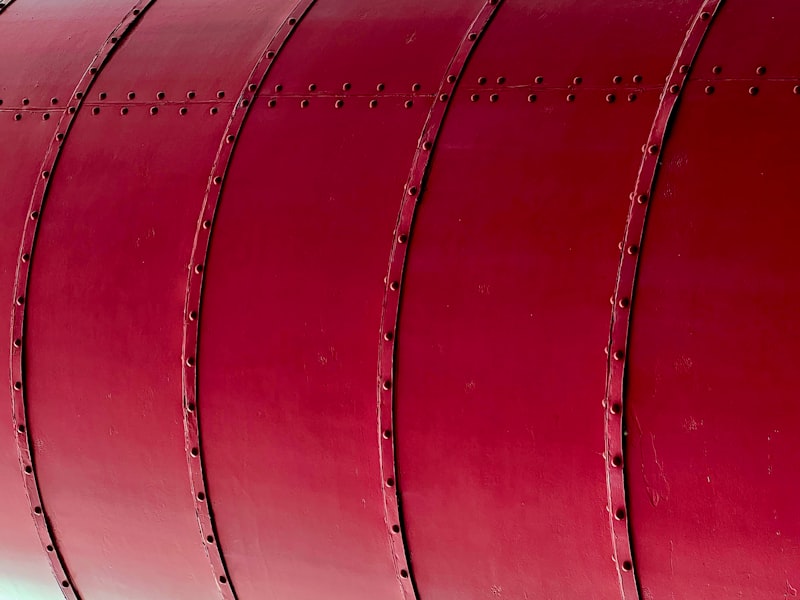Are you wondering about the cost of replacing your master cylinder and brake booster? Well, you’ve come to the right place! In this article, we’ll delve into the details of the master cylinder and brake booster replacement cost, so you can be prepared when faced with this automotive expense.
Replacing the master cylinder and brake booster in your vehicle is an important maintenance task that ensures your brakes operate effectively. The master cylinder is responsible for generating hydraulic pressure, while the brake booster enhances the force applied to the brake pedal, making it easier to stop your car.
Now, let’s talk about the cost. Keep in mind that prices can vary depending on several factors such as the make and model of your vehicle, the region you’re in, and where you get the repair done. On average, expect to pay anywhere between $300 and $800 for the replacement of both the master cylinder and brake booster.
It’s worth noting that these costs may include labor charges, parts, and any additional services required during the replacement process. To get an accurate estimate for your specific vehicle, it’s best to consult with a trusted mechanic or visit a reputable auto repair shop.

When considering the cost, remember that investing in your vehicle’s braking system is crucial for your safety on the road. Faulty brakes can lead to accidents and jeopardize the well-being of both you and others. So, it’s essential to prioritize the maintenance and repair of your braking system.
The cost of replacing the master cylinder and brake booster can range from $300 to $800, depending on various factors. Although it might seem like a significant expense, ensuring the proper functioning of your brakes is vital for your safety. Be sure to consult a professional mechanic to get an accurate estimate and maintain a reliable braking system in your vehicle.
Unveiling the Costs: What to Expect When Replacing Your Master Cylinder and Brake Booster
Replacing your master cylinder and brake booster may seem like a daunting task, but understanding the costs involved beforehand can help you make an informed decision. In this article, we’ll dive into the details and give you a clear picture of what to expect when it comes to replacing these crucial components of your vehicle’s braking system.
The master cylinder and brake booster are integral parts of your car’s braking system, responsible for converting the pressure you apply on the brake pedal into hydraulic force that slows down or stops your vehicle. Over time, they can wear out due to regular use or develop faults, compromising the performance and safety of your brakes.
When it comes to the cost of replacing the master cylinder and brake booster, several factors come into play. First and foremost, the type and make of your vehicle will greatly influence the overall expense. Luxury or high-performance vehicles often require more specialized parts, which can be pricier compared to those used in standard models.
In addition to the parts themselves, you’ll also need to consider labor costs. Replacing the master cylinder and brake booster is a complex process that requires technical expertise. Therefore, hiring a professional mechanic is generally recommended to ensure the job is done correctly and safely. Labor costs vary depending on the mechanic’s experience, the shop’s location, and local market rates.
It’s important to note that the total cost may also include additional expenses such as taxes, fees, and any other necessary components or repairs that are identified during the inspection. To get an accurate estimate, it’s best to consult with a trusted mechanic who can assess your specific vehicle and provide a detailed breakdown of the costs involved.
While the exact figures may vary, on average, you can expect to spend anywhere from a few hundred to a few thousand dollars for the replacement of both the master cylinder and brake booster. As with any significant repair, it’s crucial to prioritize safety and choose quality parts and skilled professionals to ensure the longevity and reliability of your braking system.
Revamping Your Braking Power: The Price Tag of Master Cylinder and Brake Booster Replacement
Are you experiencing a decline in your vehicle’s braking performance? It might be time to revamp your braking power by considering a master cylinder and brake booster replacement. These crucial components play a vital role in ensuring your safety on the road, and understanding their importance can help you make informed decisions about maintenance and repairs. But before you dive into the process, let’s explore the price tag associated with master cylinder and brake booster replacements.
When it comes to pricing, it’s essential to consider several factors. Firstly, the make and model of your vehicle can significantly influence the cost. Different vehicles require different types of master cylinders and brake boosters, which vary in price. Additionally, the quality and brand reputation also play a role in determining the overall cost. Opting for reputable brands might come with a higher price, but it often ensures better durability and performance in the long run.
Moreover, the complexity of the replacement process affects the price as well. Some vehicles have easily accessible master cylinders and brake boosters, making the replacement relatively straightforward. In such cases, the labor costs tend to be lower. However, certain vehicles may have these components tucked away in tight spaces, requiring more effort and time for replacement. As a result, the labor charges might increase.
Another aspect to consider is whether you choose original equipment manufacturer (OEM) parts or aftermarket alternatives. OEM parts are specifically designed for your vehicle’s make and model, guaranteeing compatibility. While they tend to be pricier, they offer a higher level of quality assurance. On the other hand, aftermarket options are more affordable but may vary in terms of quality and compatibility.
To get a better idea of the cost, it is recommended to consult with a trusted mechanic or visit reputable auto repair shops. They can evaluate your specific vehicle and provide you with an accurate estimate based on the factors discussed earlier. Additionally, keep in mind that prices may vary depending on your location and the prevailing market rates.
Revamping your braking power through master cylinder and brake booster replacement is a crucial step in ensuring your safety on the road. Although the price tag may vary depending on factors such as your vehicle’s make and model, brand reputation, complexity of the replacement process, and the choice between OEM and aftermarket parts, investing in quality components and professional installation is essential. Prioritize your safety and consult with experts to determine the best options for optimizing your vehicle’s braking performance.
Budget Breakdown: How Much Does Master Cylinder and Brake Booster Replacement Really Cost?
Are you experiencing spongy brakes or a loss of braking power? It might be time to consider replacing your master cylinder and brake booster. These vital components of your vehicle’s braking system play a crucial role in ensuring your safety on the road. But what will this essential maintenance procedure cost you? In this article, we’ll delve into the budget breakdown of master cylinder and brake booster replacement, shedding light on the true costs involved.
How Much Does Master Cylinder Replacement Cost?
When it comes to replacing the master cylinder, several factors come into play. The cost primarily depends on the make and model of your vehicle, as well as the quality of the replacement part. On average, you can expect to pay between $200 to $500 for a new master cylinder. However, keep in mind that additional expenses may arise if other parts need replacement or if you choose to have a professional mechanic perform the installation.
The price range mentioned above covers the cost of the master cylinder itself. If you opt for an original equipment manufacturer (OEM) part, which is specifically designed for your vehicle, it might lean toward the higher end of the spectrum. Alternatively, you can choose aftermarket options that offer reliable performance at a more affordable price point.

While some car owners with intermediate mechanical skills may attempt a DIY master cylinder replacement, it’s generally recommended to seek professional help. Mechanics possess the expertise and the necessary tools to ensure a proper installation, preventing potential complications or safety hazards down the road. A professional installation may incur additional labor charges, ranging from $100 to $300, depending on your location and the complexity of the job.
Calculating the Brake Booster Replacement Costs
Similar to the master cylinder, the cost of a brake booster replacement can vary based on several factors. On average, you can expect to spend between $200 and $600 for a new brake booster. The price range depends on the make and model of your vehicle, as well as the type of brake booster you choose.
Brake boosters are available in different types, including vacuum-assisted and hydraulic-assisted variants. Vacuum-assisted brake boosters are more common and generally less expensive, while hydraulic-assisted ones can be pricier due to their enhanced performance capabilities. Keep in mind that the cost mentioned includes the brake booster itself, and additional expenses might be incurred if professional installation is required.
Speaking of installation, it’s important to note that replacing the brake booster is a complex task that requires technical expertise. Therefore, it’s recommended to have a certified mechanic handle the replacement process. Similar to the master cylinder, the cost of professional labor for brake booster replacement can range from $100 to $300, depending on various factors such as location and the complexity of the job.

Now that you have a clearer understanding of the budget breakdown, you can make an informed decision when it comes to replacing your master cylinder and brake booster. Remember to consider the specific requirements of your vehicle, the quality of parts you choose, and whether you opt for professional installation or take on the task yourself. By prioritizing the safety of your braking system, you’re ensuring peace of mind and the continued performance of your vehicle on the road.
From Pads to Boosters: Understanding the Expenses Involved in Replacing Your Vehicle’s Braking System
Are you ready to dive into the world of vehicle maintenance and understand the costs associated with replacing your car’s braking system? In this article, we will explore the expenses involved in upgrading your pads to boosters. Buckle up and let’s get started!
When it comes to ensuring your safety on the road, a well-functioning braking system is paramount. Over time, your vehicle’s brake components wear out due to regular use and need replacements. The two main parts that require attention are brake pads and brake boosters.
First, let’s talk about brake pads. These essential components provide the friction needed to stop your vehicle when you apply the brakes. Depending on your driving habits and the type of brake pads you choose, they typically last between 30,000 to 70,000 miles. Replacing brake pads involves not only the cost of the pads themselves but also the labor involved in installation. Generally, the price range for a set of brake pads can vary from $50 to $150, while the labor charges can be around $100 to $200.
Now, let’s shift our focus to brake boosters. Brake boosters play a crucial role in amplifying the force you apply to the brake pedal, making it easier to bring your vehicle to a stop. If you notice a decrease in braking power or a spongy brake pedal, it might be time to replace your brake booster. Like brake pads, the cost of a brake booster can vary depending on your vehicle’s make and model, ranging from $100 to $500. Additionally, you should consider the labor charges, which can be anywhere from $200 to $500.
Keep in mind that these figures are general estimates, and prices may vary based on various factors such as the brand of the parts, location, and the specific repair shop you choose.
Understanding the expenses involved in replacing your vehicle’s braking system is essential for maintaining safety on the road. Whether it’s upgrading your brake pads or replacing a faulty brake booster, it’s important to be aware of the costs associated with these replacements. By staying proactive and addressing any braking system issues promptly, you can ensure smooth and secure journeys for yourself and others on the road.